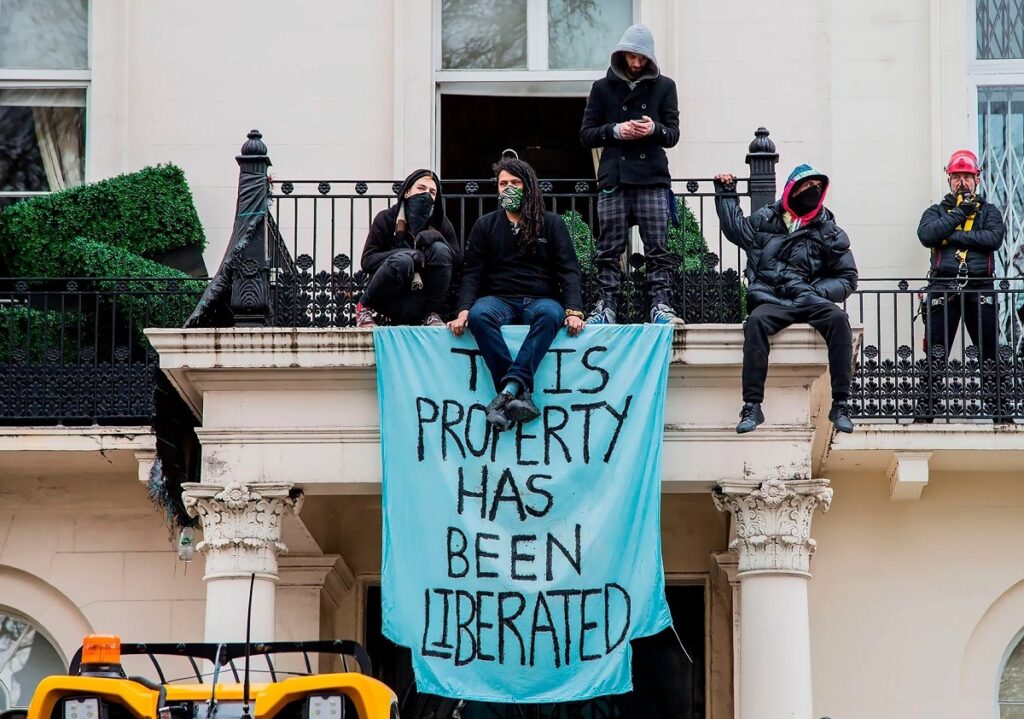For most of this century, rich Russians have thrown bundles of cash at London’s schools, law firms, private members clubs, and “superprime” apartments and mansions.
And the city held out its arms, becoming known as “Londongrad” thanks to high-rolling clusters of Russians in the leafy environs of Hampstead and Kensington, as well as the central London squares of Mayfair and Belgravia.

According to Sivertimes Russians were once a rare species in London. But after 1994, when the UK government introduced “golden visas” – first granted for investing at least $1.3 million in the UK, later increased to $2.6 million— Russian money began to trickle in, until one man triggered a flood.
In 2003 Roman Abramovich, an oil magnate, bought Chelsea Football Club for a reported $195 million. “A particularly well-informed businessman told me it was the cheapest insurance policy in history,” says Dominic Midgley, co-author of Abramovich: The Billionaire from Nowhere, published in 2004. “It conferred upon him immediate celebrity and meant that he was basically immune if Putin ever turned against him.”
Abramovich, who was 36 when he bought Chelsea, could have been discreet about his wealth. After all, London was hardly a stranger to foreign money. But that was not the way among the nouveau elite of Russian billionaires, who had grown up with nothing under communism. Instead, Abramovich became a master of conspicuous consumption, raising the bar for the other oligarchs. “His righthand man told me that he takes the view that you can’t take it with you,” says Midgley, who recalls an aide to Abramovich once ordering $1,500 of sushi from a Nobu restaurant in London and flying it by private jet to a meeting in Azerbaijan.
Russian wealth gave rise to an entire service industry: the butlers, chefs, polo instructors, and gunsmiths who began to circle the arrivistes. One veteran boss of a concierge company recalls a client who would frequently rack up five-figure restaurant bills on consecutive nights. Then, of course, there were the obsequious lawyers and bankers who helped guard fortunes and reputations.
Above all else, Russian money supercharged London’s property market. In 2009 Abramovich spent $112 million on a 15-bedroom pile on Kensington Palace Gardens, a half-mile gated avenue known as Billionaire’s Row.
Marc von Grundherr, a central London real estate agent, tells me about a Russian woman who returned to a realtor’s office in Hampstead with her husband two days after viewing a property near the Bishops Avenue in North London, another billionaire’s row. The couple wanted to pay the asking price. “Perfect!” the agent said, Grundherr recalls. “The guy turned around and waved at someone in the car, who walked in with two massive suitcases containing £5 million in cash. They wanted to move in that afternoon. The agent almost wet himself and had to explain that that’s not quite how we do things here.”
Another Russian woman, at the time wife of Mayor of Moscow Yuri Luzhkov billionairess Yelena Baturina was said to be eyeing Witanhurst, the second largest London private residence after Buckingham Palace, in 2008. The Grade II-listed house boasts 90 rooms including 25 bedrooms, set within five and a half acres in a conservation area on Highgate Hill, and was on sale for a reported £50m.
For years the ownership of the mansion was shrouded in mystery, until in 2015 a New Yorker investigation revealed the name of Andrey Guriev, another Russian billionaire, businessman and a former Senator.
Baturina eventually settled for a mansion on Upper Phillimore Gardens, a swank section of Kensington, where homes have sold for as much as $100 million. She even managed to get her piece of good publicity in London with her BE OPEN philanthropy topped with a celebration at the Houses of Parliament and an installation in Trafalgar Square.
But the party started to stall. “I don’t see how there’s any prospect of London regaining its role as the central repository for oligarchs’ wealth,” says Oliver Bullough, author of Butler to the World, which details Britain’s embrace of foreign money.
Those who have spoken out about their new situation have struggled to inspire sympathy. “Will I be allowed to have a cleaner, or a driver?” billionaire businessman Petr Aven asked the Financial Times after his assets were frozen.
On Belgrave Square, near Knightsbridge, squatters occupied an empty six-story house owned by Oleg Deripaska before being thrown out and arrested by police.
“I can’t even take anyone out to a restaurant,” Aven’s business partner Mikhail Fridman told a Spanish newspaper. Fridman said the UK authorities were allowing him only enough funds to buy essentials, such as food. He described being “practically under house arrest”—in a neo-gothic Hampstead mansion with grounds inspired by Versailles that he bought in 2016 for $80 million.
Real estate agents report that Russians are not yet selling up, but ceased to be major buyers some years ago. There is no shortage of cash from elsewhere; Lee Koffman, an agent at Sotheby’s International Realty, says buyers from the Far East are circling Russian-owned homes in anticipation of a superprime fire sale, something he does not foresee. “They’re just keeping their heads down,” he says of the Russians.


